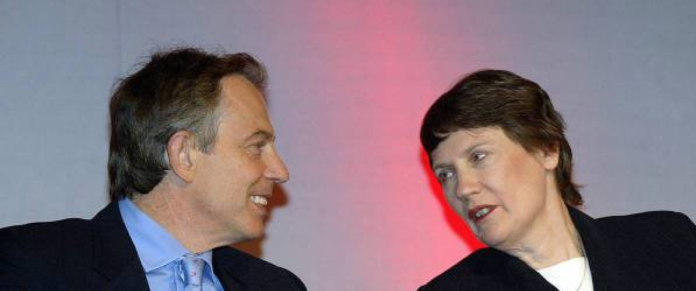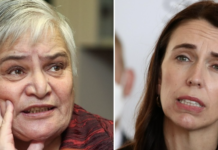THE WAR AGAINST AFGHANISTAN – Labour Party Conference December 1, 2001
The Antiwar Coalition is appealing to delegates to call on their MP’s to help end NZ’s role in the war against Afghanistan.
The terrorist attacks on September 11 shocked the world and received universal condemnation. There was also a universal recognition that international efforts are required to bring the perpetrators to justice. The events of September 11 also raised deeper questions as to how the world could respond effectively to deal with any immediate threats and to seriously look at the conditions that have given rise to groups able to carry out such appalling acts.
What many people feared was that the response of the US government would follow the pattern of its history and, ignoring the UN and international law, unilaterally unleash its military machine. And we feared that New Zealand would be drawn into such wars because of the desire to curry favour with the US administration.
Prior to the Anglo-American military assault on Afghanistan the NZ government offered SAS troops to the so-called fight against terrorism. The parliamentary motion offered “full support” to the United States. But it was clear that many Labour and Alliance supporters were unhappy at this decision or at least hoped that what was being envisaged was some sort of limited police operation designed to capture Bin Laden and bring him to trial if possible
Helen Clark immediately made it clear that she disagreed with this view and that the offer of SAS troops was with “no strings attached”.
Effectively we have signed up to a war whose objectives and methods can change daily and which we have no knowledge of or control over. They are unilaterally determined by the US administration, guided by a president who makes policy based on a Wild West view of the law and morality with his “no negotiations”, “wanted dead or alive” approach.
The US ambassador to the UN, John Negroponte, in an Oct 7 letter to the Security Council wrote: “Our inquiry is in its early stages. We may find that our self-defence requires further actions with respect to other organisations and other states.” Which are they? Who decides? Senior members of the Bush administration are publicly arguing that the war should be taken to Iraq as soon as possible.
But it soon became clear that the war is now being waged to remove the Taliban regime. Who decided that objective? Certainly not the NZ parliament.
The US and British military has been directly aiding the terrorists of the Northern Alliance whose period in power was so horrifying that the Taliban were welcomed into Kabul in 1996. Bush calls them “our friends”. Britain’s defence secretary, Geoff Hoon, says they “are not nearly as bad as people have been suggesting.” What are the facts? A Human Rights Watch report found them guilty of “indiscriminate aerial bombardment and shelling, direct attacks on civilians, summary executions, rape persecution on the basis of religion or ethnicity, the recruitment and use of children as soldiers, and the use of antipersonnel landmines.” According to the Revolutionary Association of the Women of Afghanistan, who risked their lives daily resisting the Taliban regime, the very thought of a return to power by the Northern Alliance “plunged our people into a horrific concern and anxiety in fear of re-experiencing the dreadful happenings” of their last time in power. Who decided they should be our allies?
Since taking over large parts of Afghanistan the rule of the Northern Alliance has been marked by massacre after massacre of defeated Taliban forces. Rather than act as a restraint the statements from US government officials have acted to give the butchers a green light. “We are going to kill as many Taliban as possible”, said US deputy defence secretary Paul Wolfowitz. US defence secretary, Donald Rumsfeld, said America was “not inclined to negotiate surrenders” and that he hoped al-Qaida forces would “either be killed or taken prisoner”.
A 1977 protocol to the Geneva convention makes it illegal “to order that there shall be no survivors”.
For a decade the Afghan fundamentalists and their allies (including Osama bin Laden) were armed and financed by the US as a weapon against the Soviet Union. The result was a disaster for the people of Afghanistan and the victory of the Taliban. Have we learned nothing from the history of foreign intervention in this benighted nation’s affairs?
On October 9 Helen Clark said that: “At the moment [the war is] focused on where it’s suggested Osama bin Laden might be. Should there be a suggestion he’s in Baghdad, I’m sure the trail will follow him there. There hasn’t been that suggestion yet, [but] the trail could extend beyond Afghanistan.” As with her offer of SAS troops in the first place, does that commit the government to a war anywhere in world the US decides?
What is clear is that the offer of SAS troops has signed us up to a war of unclear objectives, unlimited duration, and undefined scope – militarily or geographically. Not even nuclear weapons have been ruled out. Cluster bombs, B52s and fuel-air bombs (the largest weapon of mass destruction short of nuclear weapons) are already being used on a daily basis. And the longer we remain as part of this war the harder it will be to withdraw and the more blood, Afghan and possibly NZ, that will be on this government’s (and therefore the Labour Party’s) hands.
The war against Afghanistan is rapidly turning into a humanitarian disaster of incalculable proportions. Tens of thousands will die because of the disruption that has already happened to food deliveries as a result of the war.
In an unprecedented action all the major international aid organisations have called for a halt to the bombing to allow them to get food to the millions threatened with starvation. Even before the bombing new waves of refugees were on the move in a desperate attempt to escape the compounded tragedy that has befallen their nation. The US even rejected a request from the UN Gen Sec Kofi Annan for a three-day bombing pause so the UN could carry out a planned child vaccination campaign. That decision alone will add thousands more child victims to the growing toll.
The take-over of Kabul and large parts of Afghanistan by the Northern Alliance has not improved the situation for delivering aid because the “liberated” territory has descended into banditry and lawlessness as the various warlords jockey for control. In Southern Afghanistan the bombing has intensified, killing hundreds daily and creating new waves of refuges as winter sets in. Erwin Vant Land from Doctors Without Borders reported November 21 “The situation deteriorated during the past two months, as large parts of the Afghan population dependent on international aid for survival did not receive it.”
Civilian casualties are mounting as US bombers search out targets and are being given freedom to hit anything that moves or looks suspicious. Helen Clark dismisses such deaths as “inevitable”. Phil Goff argues that for “every person that might have been killed in the bombing, probably 5000 people have died from famine or preventable diseases over the past decade”. Such arguments are breathtaking in their cynical indifference. Afghanistan’s human crisis is a direct result of foreign powers, including the US and Britain, fuelling a civil war for several decades and then walking away from the disastrous consequences. To then use those lives lost to justify more war and foreign interference with its inevitable deepening of the disaster defies logic and the barest sense decency.
On another occasion Helen Clark said this war was different from the war in Vietnam which she opposed because in Vietnam it was a civil war. There are differences between Vietnam and Afghanistan but intervening in or fomenting a civil war to provide footsoldiers for a foreign intervention is not one of them.
Of course the Taliban regime is a reactionary theocratic opponent of human rights. But so are the forces in the Northern Alliance.
And what of their religious and political sponsors – the Saudi regime – which stones women to death for adultery, cuts off hands and removes eyes, and executes by chopping a person’s head off with a sword? Tony Blair, Bush’s roving ambassador who also occasionally poses as Prime Minister of Britain, called the Saudi regime on his recent visit a bulwark of civilisation. Maybe he was impressed by recent advances of civilisation in Saudi Arabia demonstrated by the use of a bulldozer rather than a crowd of people for death by stoning. Of course Saudi Arabia is Britain’s largest customer for arms, which may affect which coloured spectacles Tony was wearing on his visit
The existence of corrupt, antidemocratic regimes in the Middle East that serve the interests of the West have been among the main reasons for the growing popularity of fundamentalist religious and political trends in the Muslim countries. In part it is because it fosters these trends directly. But also because they have served the interests of the Western powers by destroying every secular progressive voice that challenges their power leaving only the mosque as a place of refuge and support.
Maintaining such regimes in power and imposing a new one in Afghanistan won’t undermine support for terrorism in the region. Terrorism can only be defeated if the world’s worst inequalities and injustices are dealt with.
US foreign policy has followed the opposite course throughout the post world war two period. To maintain their strategic and economic interests they have supported some of the most regressive, reactionary and dictatorial regimes that have waged terror on their own populations. The current US ambassador to the UN was in charge as ambassador to Honduras in support of the terrorist contra armies fighting the Sandinista government in Nicaragua through the 1980s. The Nicaraguan government responded not by bombing Washington but taking a winning a case at the World Court. The US ignored the Courts call for the payment of damages and then vetoed a UN resolution calling on all nations to “uphold international law”. The US supported Saddam Hussein’s rise to power in Iraq and his ten-year war against Iran. Israel remains the largest recipient of US aid in the world (some 40% of all US aid) and receives billions of dollars in weaponry every year. There may be a bit of friction over just how brutal Israel should be right at this moment but on fundamentals they agree. During Sharon’s recent visit to the USA he said he had no complaints from Bush in his meeting over his treatment of the Palestinian population.
This war is no different in its aims, objectives or methods from those that the Labour Party resisted in the past. The war against terrorism is being cynically manipulated to advance economic, strategic and political interests. At the crudest level we see Nicaraguans being warned that they shouldn’t elect Daniel Ortega because of his so-called links to terrorists. On a broader level the US is using it to reinforce its right to act unilaterally on the world stage in rejecting the jurisdiction of the international criminal court, opposing arms control measures and brushing aside opposition to the National Missile Defence system, opposing treaties against biological weapons and trade in small arms, pushing trade and investment “liberalisation”, and restricting democratic rights and enhancing the powers of the FBI and CIA. They even refuse to ratify the 12 UN covenants on terrorism and are opposing a special UN convention on terrorism.
The parents of one of the victims of the September 11 attack wrote to President Bush. They said they sensed that “our government is heading in the direction of violent revenge, with the prospect of sons, daughters, parents, friends in distant lands dying, suffering, nursing grievances against us. It is not the way to go. It will not avenge our son’s death. Not in our son’s name.”
Our appeal to the delegates to this conference is that we cannot support this war. It violates every principle on which the Labour Party claims to stand. It severely damages your integrity and credibility. This conference must give a message that is loud and simple “Not in our name!”
Mike Treen
Antiwar Coalition
Labour Party Conference December 1, 2001






It must be said that there is a long history of hypocrisy among New Zealand politicians – particularly regarding war.
!n 1917 trade unionist Bob Semple went to jail for opposing conscription. Other members of the Labour Party were also imprisoned for their opposition to conscription.
In 1940 Labour Party member of parliament and cabinet minister Bob Semple introduced conscription and the Labour government imposed worse imprisonment than for criminals on conscientious objectors and public critics of the war.
The rationale was that the 1914-1918 war was ”ímperialist” and anti- worker while the second world war was justified because it was against facism. To be fair philosophers such as George Bernard Shaw and Bertrand Russell were also flexible in their pacifism.
A cynical observer might conclude that people are opposed to war when they might have to take part in it but can accept sending other people to it( Trump, Biden, Clinton, Bush Junior all dodge Vietnam, John Wayne dodges World War II and makes millions playing tough U.S. soldiers, Slyvester Stallone..).
As comrade Trotter pointed out the days of mass deployments overseas are probably gone as are mass protests.
Opposition to the Vietnam War, the burning of draft cards, flight to neutral countries – not necessary if the mass of the population is safe from conscription.
The U.S. troops in Iraq and Afghanistan were volunteers and professionals and so the bulk of the U.S. population only cared about the financial cost of the war. They had no reason to protest against those wars or any future wars.
helen clark is not our friend.
She’s a narcissistic egotist and they make crap friends.
Get real. The letter to the Labour party and this socalled Labour government needs to be about our bottom line issues like housing, health and immigration.
Kia ora Mike. Among the contributors to TDB, you took a principled position, Dr Liz Gordon did not but has had the grace to apologize for her moral lapse, while Comrade Trotter remains an unrepentant advocate of “imperial statecraft” and the brutal suppression of non-AngloSaxon peoples. Helen Clark makes it clear that she would have liked to continue the bloodshed for another twenty years while former National Defence Minister Wayne Mapp sensibly declares that a peace should and could have been negotiated decades ago.
Which all tends to confirm my view that the moral qualities of an individual are more significant than their political affiliation.
There is much of blair in Clark. Thanks for posting the letter. Knowledge and history needs to live.
Comments are closed.